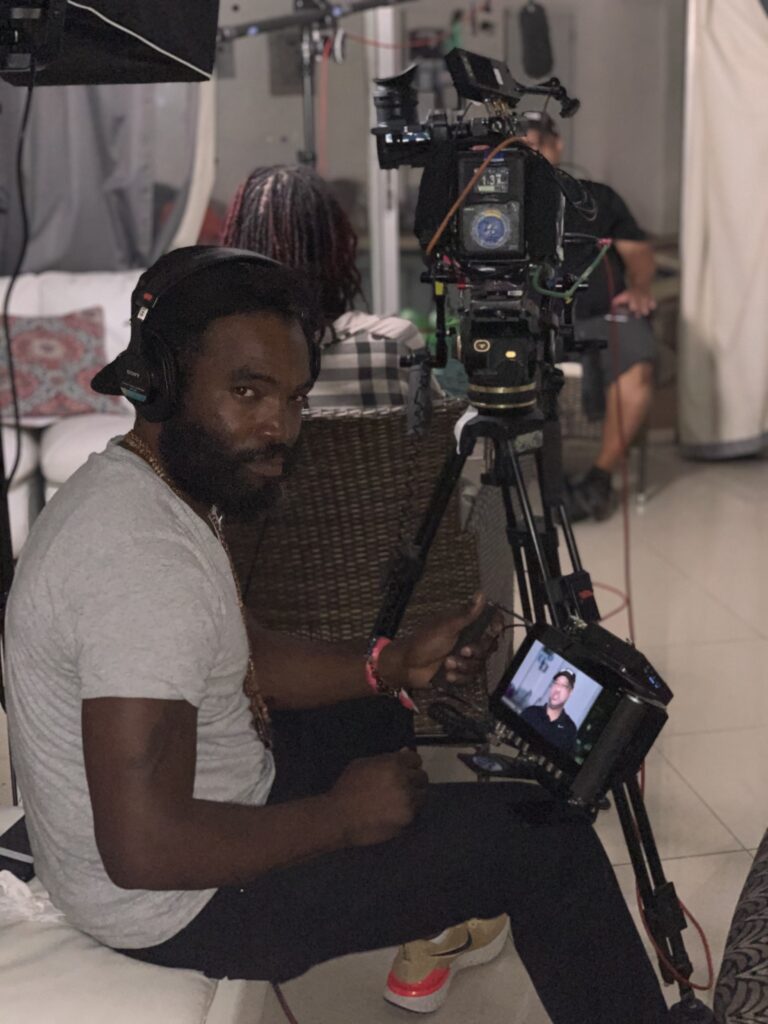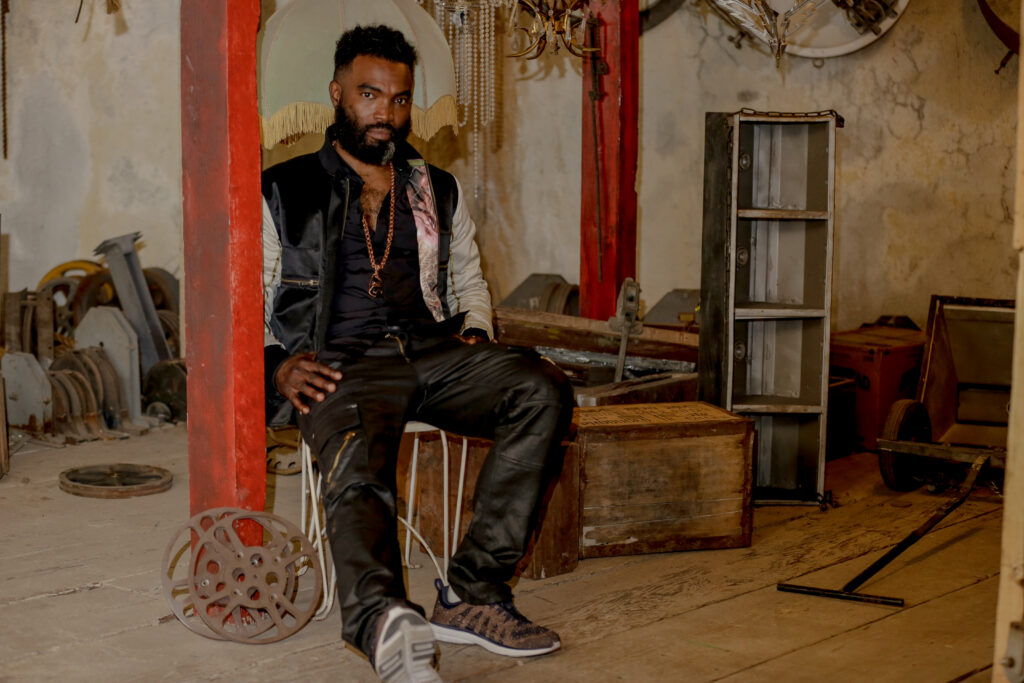An Intimate Conversation with Snowfall Star & Award-Winning Director, Damien D. Smith
Damien D. Smith is one of those artists who just enjoys creating stories for the pleasure of doing so.
The native of St. Louis, Missouri, is making an impact by making use of all of his creative resources and funding it on his own. He demonstrates to you that if you want to tell a narrative, you should do it without hesitation or apology. It was a joy to talk to him about his latest endeavors as well as his independently produced documentaries.

Entertainment Profile
Damien D. Smith
Actor & Director
Current Projects: Snowfall, Driftwood, and Emancipation
Notable Past Projects: The Purge, Young Rock, Born Again Virgin, and The American Dream
Cox: Damien D. Smith, you’ve done some incredible things and have some great things planned. I want to learn a little bit more about you before we start.
Smith: I’m a St. Louis, Missouri, native who seeks to use his range of skills, talent, and life experiences for the benefit of society. Mike, I utilize art as my tool for that. Throughout my time spent residing in New York and Los Angeles, I have developed my artistry and producing. I was able to gain knowledge and perspective in these cities that I can now apply to help others. I can take this with me wherever I go, including to my hometown of St. Louis, Missouri.
Cox: You place a lot of value on narrative and the effect it can have on individuals. Has it always played such a significant role in your life?
Smith: You are aware of how my relationship with movies actually began. I’ve always been a cinephile. Growing up, I went by the moniker “TV guide.”
Cox: So, where did this acting career begin?
Smith: That question has two distinct components. In St. Louis, I was involved in a variety of entertainment activities. But, I began working professionally in theater in New York. Nothing I have done earlier is being minimized. I have to thank the Harlem Classical Theater for giving me my first theater acting break in the play Native Son.
Cox: As a filmmaker, when did you realize it was something you were interested in?
Smith: I’ve known from the beginning that I wanted to pursue directing. When I was in charge of directing my short About That, I was in a better position than most people. This benefit stems from the numerous opportunities I had to study topics like sound, camera setup, and lighting directly from the source.
Cox: I’d want to know a bit more about the first short you made.
Smith: It centers on a young man and mental health problems. It asked what happens when love is just beneficial to you. The movie performed admirably and took home the Impact Award in San Francisco. It was shown at several events around the country. I still feel a lot of pride in it.
Cox: Because you brought up producing, this is the ideal opportunity to discuss the documentaries you produced and directed.
Smith: My Grandmother used to communicate with me through letters. She would mail me letters as a way to bond with me. Most of the time, the letters were about gossip within the family. But this particular letter included a St. Louis Postage Patch article about secret chemical testing on poor communities of St. Louis. She then let me know that she and our family and friends were a part of the testing. My grandmother would tell me tales that inspired my documentary, Target: St. Louis: Volume 1. The film discussed how following World War II and during the Cold War, the government conducted covert chemical testing on low-income residents of St. Louis. In the Brooklyn Real Sisters Film Festival and Urbanworld Film Festival, it won best documentary.

Cox: That goes beyond that. You added another as well.
Smith: Free To Be Free, yes. That’s how god made us in a project that my partner Nia Weeks and I worked on together. In this one, we discuss the problems that black women face as a result of their hair. This movie aided the deep south’s passage of the Crown Act. The movie has been mentioned and cited in legal journal publications. Through this movie, we want to give legislation life and make this policy a reality. The intention was to give humanity to things that some would dismiss as being merely trivial.
Cox: You have a special fondness and inclination for narrating tales about underrepresented and unheard-of communities and individuals.
Smith: I am an optimist and a people person. I thus strive to use the resources I have and the art I create to bring about some sort of change. If I am creating it, I want to help the audience become more enlightened in some way.
Cox: You won’t see much of a financial return on investment from these kinds of enterprises. Also, you pay for them with the money you have.
Smith: When it comes to some of the topics, I’m passionate about, I only do it for the benefit of the general public. It’s crucial to spread these tales and effect change. I’m solely concerned about that return. We produce narrative and documentary-style productions for this reason.
Cox: Let’s talk about your most recent work now. Emancipation will be my first point. Others feel that discussing this period of American history in relation to a movie like this is tedious. What do you think about that?
Smith: If a tale is recounted from only one point of view, it does start to seem repetitious. That’s accurate. Yet, in this film, you get to view historical events from the viewpoint of a fight scenario. You see people rally behind a man and his determination.

Cox: Also, you are a part of the final season of SnowFall. How does it feel to be a part of something that John Singleton, who passed away, created?
Smith: It’s a lovely thing. Participating in a production like this was like The Wire for my generation. You are unaware of its potential size and cultural implications. People come back to this show and revisit it. Being a part of a heritage is it. The first episode that was shot following John’s passing was the one that introduced my character. Everyone’s impact of his absence was palpable. It’s because this man invested so much in them.






